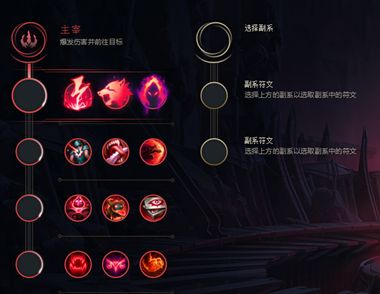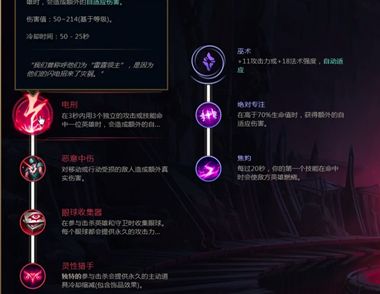让TList类型安全
只要你有一台电脑或者手机,都能关注图老师为大家精心推荐的让TList类型安全,手机电脑控们准备好了吗?一起看过来吧!
在VCL中包含有一个TList类,相信很多朋友都使用过,它可以方便的维护对象指针,所以很多朋友都喜欢用它
来实现控件数组。不幸的是,这个TList类有一些问题,其中最重要就是缺乏类型安全的支持。
这篇文章介绍如何从TList派生一个新类来实现类型安全,并且能自动删除对象指针的方法。
TList的问题所在
对于TList的方便性这里就不多说,我们来看一下,它到底存在什么问题,在Classes.hpp文件中,我们可以看到函数的原型是这样申明的:
int __fastcall Add(void * Item);
编译器可以把任何类型的指针转换为void*类型,这样add函数就可以接收任何类型的对象指针,这样问题就来了,假如你仅维护一种类型的指针也许还看不到问题的潜在性,下面我们以一个例子来说明它的问题所在。假设你想维护一个TButton指针,TList当然可以完成这样的工作但是他不会做任何类型检查确保你用add函数添加的一定是TButton*指针。
TList *ButtonList = new TList; // 创建一个button list
ButtonList-Add(Button1); // 添加对象指针
ButtonList-Add(Button2); //
ButtonList-Add( new TButton(this)); // OK so far
ButtonList-Add(Application); // Application不是button
ButtonList-Add(Form1); // Form1也不是
ButtonList-Add((void *)534);
ButtonList-Add(Screen);
上面的代码可以通过编译运行,因为TList可以接收任何类型的指针。
当你试图引用指针的时候,真正的问题就来了:
TList *ButtonList = new TList;
ButtonList-Add(Button1);
ButtonList-Add(Button2);
ButtonList-Add(Application);
TButton *button = reinterpret_castTButton *(ButtonList-Items[2]);
button-Caption = "I hope it's really a button";
delete ButtonList;
相信你已经看到了问题的所在,当你需要取得指针引用的时候TList并不知道那是个什么类型的指针,所以你需要转换,但谁能保证ButtonList里一定是Button指针呢?你也许会马上想到使用dynamic_cast来进行转化。
不幸再次降临,dynamic_cast无法完成这样的工作,因为void类型的指针不包含任何类型信息,这意味着你不能使用这样的方法,编译器也不答应你这样做。
dynamic_cast不能使用了,我们唯一的方法就是使用reinterpret_cast,不过这个操作符同以前c的强制类型转换没有任何区别,它总是不会失败,你可以把任何在任何指针间转换。这样你就没有办法知道List中是否真的是我们需要的Button指针。在上面的代码片断中,问题还不是非常严重,我们试图转换的指针是Application,当我们改变Caption属性的时候,最多把标题栏的Caption属性改了,可是假如我们试图转换的对象没有相应的属性呢?
TList的第二个问题是,它自动删除对象指针的功能,当我们析构TList的时候,它并不能自动释放维护的指针数组的对象,很多时候我们需要用手工的方法来完成这样一件事情,下面的代码片断显示了如何释放他们:
TList *ButtonList = new TList; // create a list of buttons
ButtonList-Add(new TButton(Handle)); // add some buttons to the list
ButtonList-Add(new TButton(Handle));
ButtonList-Add(new TButton(Handle));
ButtonList-Add(new TButton(Handle));
...
...
int nCount = ButtonList-Count;
for (int j=0; jnCount; j++)
delete ButtonList-Items[j];
delete ButtonList;
(译注:上面的代码有问题,应该是for(int j=nCount-1;j=0;j--),及要反过来循环,否则可能出现AV)
表面上看来,上面的代码能很好的工作,但是假如你深入思考就会发现潜在的问题。Items[j]返回的是一个void指针,这样delete语句将会删除void指针,但是删除void指针与删除TButton指针有很大的不同,删除void指针并不会调用对象的析构器,这样存在于析构器中的释放内存的语句就没有机会执行,这样将造成内出泄漏。
完了能完全的删除对象指针,你必须让编译器知道是什么类,才能调用相应的析构器。好在VCL的析构器都是虚拟的,你可以通过转换为基类来安全的删除派生类。比如假如你的List里包含了Button和ComboBox,有可以把他们转换为TComponent、TControl、TWinControl来安全的删除他们,示例代码如下:
TList *ControlList = new TList;
ControlList-Add(new TButton(Handle));
ControlList-Add(new TEdit(Handle));
ControlList-Add(new TComboBox(Handle));
int nCount = ControlList-Count;
for (int j=nCount; j=0; j--)
delete reinterpret_castTWinControl *(ControlList-Items[j]);
delete ControlList;
上面的代码可以安全的删除任何从TwinControl派生的子类,但是假如是TDatset呢?TDataSet并不是从TWinControl继续的,这样delete将调用TWinControl的析构器,这同样可能造成运行时的错误。
改进TList
通过上面的论述,我们已经大概了解了TList需要如何改进。假如TList知道它处理的对象的类型,大多数的问题就解决了。下面的代码就是为了这个目标来写的:
#ifndef TTYPEDLIST_H
#define TTYPEDLIST_H
#include classes.hpp
template class T
class TTypedList : public TList
{
private:
bool bAutoDelete;
protected:
T* __fastcall Get(int Index)
{
return (T*) TList::Get(Index);
}
void __fastcall Put(int Index, T* Item)
{
TList::Put(Index,Item);
}
public:
__fastcall TTypedList(bool bFreeObjects = false)
:TList(),
bAutoDelete(bFreeObjects)
{
}
// 注重:没有析构器,直接调用Delete来释放内存
// 而且Clean时虚拟的,你知道怎么做了?
int __fastcall Add(T* Item)
{
return TList::Add(Item);
}
void __fastcall Delete(int Index)
{
if(bAutoDelete)
delete Get(Index);
TList::Delete(Index);
}
void __fastcall Clear(void)
{
if(bAutoDelete)
{
for (int j=0; jCount; j++)
delete Items[j]; //(译注:这行代码同样存在上面提到的问题)
}
TList::Clear();
}
T* __fastcall First(void)
{
return (T*)TList::First();
}
int __fastcall IndexOf(T* Item)
{
return TList::IndexOf(Item);
}
void __fastcall Insert(int Index, T* Item)
{
TList::Insert(Index,Item);
}
T* __fastcall Last(void)
{
return (T*) TList::Last();
}
int __fastcall Remove(T* Item)
{
int nIndex = TList::Remove(Item);
// 假如bAutoDelete is true,我们将自动删除item
if(bAutoDelete && (nIndex != -1))
delete Item;
return nIndex;
}
__property T* Items[int Index] = {read=Get, write=Put};
};
#endif
实例代码
//----------------------------------------------------------------------------
// 示例代码1
#incude "typedlist.h"
void __fastcall TForm1::CreateButtons()
{
// false,不自动删除
TTypedList TButton *ButtonList = new TTypedList TButton(false);
ButtonList-Add(new TButton(this));
ButtonList-Add(new TButton(this));
ButtonList-Add(new TButton(this));
// ButtonList-Add(Application); -- 无法通过编译
for (int j=0; jButtonList-Count; j++)
{
ButtonList-Items[j]-Caption = "Button" + IntToStr(j);
ButtonList-Items[j]-Left = 250;
ButtonList-Items[j]-Top = 50 + j*25;
ButtonList-Items[j]-Parent = this;
}
delete ButtonList;
}
//----------------------------------------------------------------------------
// 实例代码2
#incude "typedlist.h"
void __fastcall TForm1::CreateButtons()
{
typedef TTypedList TButton TButtonList;
TButtonList *ButtonList = new TButtonList(true);
ButtonList-Add(new TButton(this));
...
delete ButtonList;
}
//----------------------------------------------------------------------------
// Code Example 3: A list of tables and queries
#incude "typedlist.h"
void __fastcall TForm1::OpenDataSets()
{
typedef TTypedList TDataSet TDataSetList;
TDataSetList *list = new TDataSetList(false);
list-Add(Table1);
list-Add(Table2);
list-Add(Table3);
list-Add(Query1);
for (int j=0; jlist-Count; j++)
list-Items[j]-Active = true;
delete list;
}
通过使用模板技术,我们把问题消灭在了编译时期,而且也提供了自动删除的机制,又由于上面的代码使用了内联技术(inline),所以也没有牺牲代码的效率。
建议你使用STL
通过上面的代码论述,很多初学者可能会害怕,没有类型安全,没有自动删除机制,改代码又那么麻烦,有没有更简单的方法?答案是STL,STL是轻便的,高弹性,高度复用性的,以及类型安全的。假如使用STL,TList的替代品是Vector。










